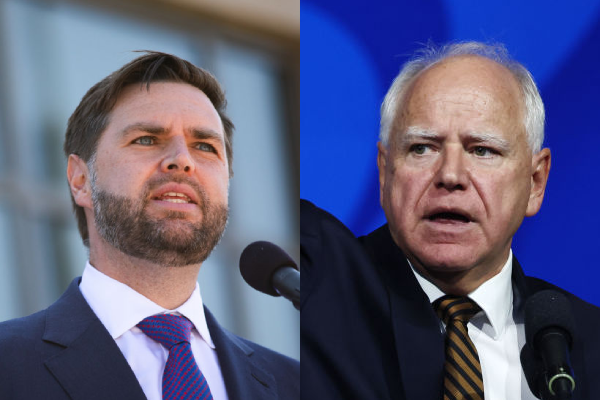Washington — On Wednesday, Gov. Tim Walz announced his participation in a vice presidential debate set for October 1 in New York City, hosted by CBS News. This move adds an exciting dimension to the upcoming political landscape as Americans gear up for the elections.
However, the participation of GOP Senator JD Vance remains uncertain, as Donald Trump’s campaign has yet to confirm the date. Earlier in the day, CBS News proposed four potential dates for the debate: September 17, September 24, October 1, and October 8. The Walz-Harris campaign quickly accepted the October 1 date.
“See you on October 1, JD,” Walz proclaimed in a post on X, officially setting the stage for the political encounter. A campaign representative highlighted Walz’s eagerness to engage in the debate, contingent upon Vance’s commitment to appear.
The Status of the Debate Participation
Vance was less forthcoming when asked about his availability for the debate upon returning from an event in Michigan. In a subsequent interview with Fox News, he expressed openness to the October date but did not make a formal commitment.
“We’re certainly going to debate Tim Walz. We just heard about this thing three hours ago, so we’re going to talk to them and figure out when we can debate,” Vance explained. Emphasizing the significance of proper debate conditions, he reiterated, “We want to actually look at the debates, look at the moderators, talk about the rules a little bit.” He also expressed a strong desire for multiple debates, asserting the need for voters to witness firsthand the exchange of ideas.
Backdrop to the Upcoming Debate
The scheduling of the vice presidential debate has been marked by uncertainty since CBS News originally reached out to both presidential campaigns in the spring. Initially, in May, Vice President Kamala Harris indicated willingness to engage with the Republican nominee on dates that had included July 23 and August 13.
Trump’s selection of Vance as his running mate earlier this summer came amidst a backdrop of speculation around debate timing and strategy. Following conversations about the necessity of these public political discussions, his campaign held off on confirming debate dates while awaiting clarity on Harris’s eventual candidacy.
In a notable shift, following Biden’s exit from the race, Harris secured the support necessary to ascend the Democratic nomination. By appointing Walz to the ticket, this solidified the prospective military and economic interests within both party platforms, invigorating the electoral dialogue leading up to the November elections.
The Shift in Debate Organization
This election cycle marks a pivotal moment, being the first time since 1988 that debates will not be managed by the nonpartisan Commission on Presidential Debates. In response to accusations of bias in previous election meetings, the Republican National Committee took the extraordinary step in 2022 of voting to prohibit GOP nominees from participating in debates sanctioned by the commission.
Television networks, including CNN, are now directly negotiating with the campaigns for upcoming debate formats, with CNN successfully hosting the inaugural debate of the current election season earlier than usual. This development opens the door for various media sources to influence the conversation ahead of the pivotal presidential election.

